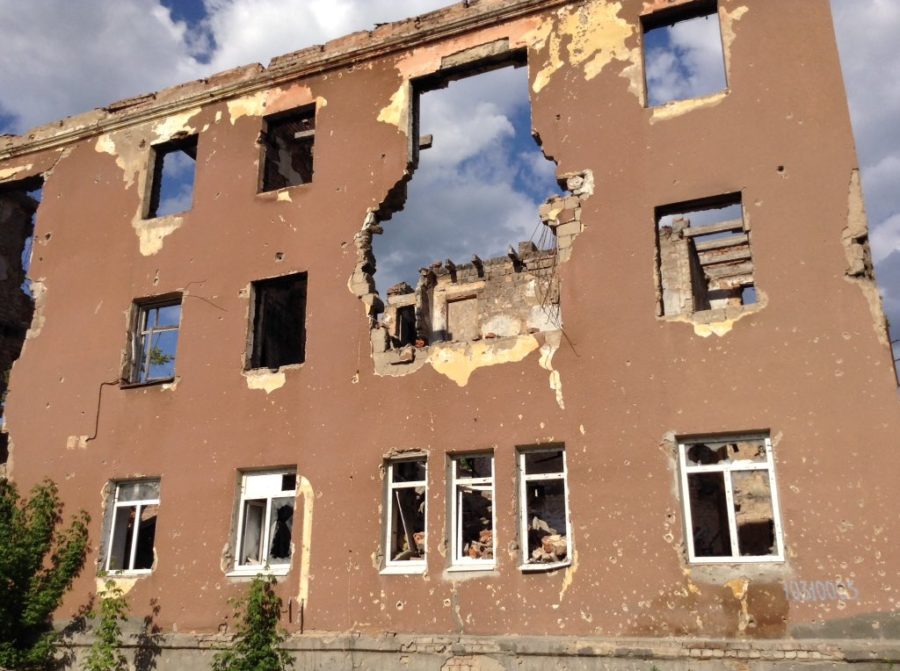4th July 2017
Postcard from Ukraine

I recently travelled to Ukraine with 26 other OSCE ambassadors, visiting Kyiv, Kharkiv, Kramatorsk and Slovyansk. This was an important visit for us. In our diplomatic meetings we devote a lot of time to Ukraine and management of the conflict in the Donbas that has already cost over 10,000 lives and disrupted millions more. We wanted to show support for resolution of the conflict in line with OSCE principles and commitments and for the Special Monitoring Mission (SMM) and other OSCE activity in Ukraine. We also hoped to understand better the humanitarian consequences of the ongoing violence.
As well as OSCE missions we met civil society organisations, international humanitarian agencies, parliamentarians and Foreign Minister Klimkin. Some colleagues had never travelled to Ukraine. Some knew it well (I first travelled to the Donbas in around 1990). But the visit gave us all useful insight into the environment in which the SMM and those seeking to resolve the conflict are working.
With the conflict now into its fourth year, it no longer grabs the daily headlines of the world’s media. But the human toll continues to rise. And living conditions, especially for people with the misfortune to live near the line of contact, are precarious and dangerous. At the time of our visit SMM monitors were logging a staggering 1000-1200 ceasefire violations daily, mostly in the Donetsk oblast.
SMM teams divide their time between facilitating activities needed to maintain some semblance of ‘normal’ life for people in the affected areas, monitoring/gathering information on weaponry and military activity, and reporting back to OSCE states. The Mission has throughout its three year existence had to deal with many challenges involving obstructed access and intimidation, predominantly in areas controlled by so-called ‘separatists’. We heard from monitors about the verbal abuse they face, not only from ‘separatist’ fighters but also from local people in the separatists-controlled area who have been barraged with deliberate disinformation about the SMM. The death of an SMM patrol member on 23 April, which gave OSCE states serious cause for reflection, sadly did nothing to bring down the number of hostile incidents.
Civil society organisations and international aid agencies also face extremely limited and unpredictable access to eastern Ukraine. Their serious humanitarian concerns include fears about sustainable water supplies and hardships resulting from new documentation regimes introduced by so-called ‘separatist’ local authorities.
This is a conflict that happened only because Russia created it. It continues because the Kremlin fuels it with weapons, money and military personnel. But nothing changes the fact that Ukraine is a sovereign and independent state, entitled in international law to control its own borders and to enjoy respect for its territorial integrity. Ukraine has every right to determine and develop its own future as a successful, united and law-governed state living in peace with all its neighbours. And it has every right to expect support from the international community in pursuing the reforms needed to secure that future and to help restore stability and security to this corner of our continent. The UK is unwavering in its support to help Ukraine achieve these goals.